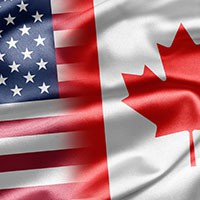Last updated: September 17 2018
U.S. Tax Reforms: More Damaging Than NAFTA Failure?

Data from a recent PwC study shows that the economic repercussions of Canada’s increasing lack of competitiveness due to U.S. tax reforms, could be ten times greater than the fallout from a NAFTA termination. If you work with business owner clients, expect to be asked about the granular details of the incentives.

Why does this new data make this a more pertinent issue? The PwC study shows the loss of this competitive advantage has been estimated to be an $85 billion loss to Canada’s Gross Domestic Product (the equivalent of 4.9 percent of the GDP). Additionally, this could cost our nation $20 billion in foregone government revenues, and the loss of 635,000 jobs. Not to mention, that Canada’s capital investment has been on the decline, as has direct foreign investment.
These are all core issues with the ability to negatively affect the Canadian economy, impacting business owners, especially those in certain industries. PwC specifically highlights that moving operations to the U.S. would be most advantageous to capital-intensive industries. That is, those that require significant investment in machinery and infrastructure. This includes manufacturing sectors, in particular, such as chemicals, machinery, plastic and rubber, transportation, mining and food. The U.S. introduced immediate capital spending deductions; a perk that isn’t offered here.
It will be interesting to see if Finance Minister Morneau adds accelerated capital cost allowances to his next budget list to match U. S. incentives. Last year, the U.S. also cut the corporate tax rate significantly (from 35 to 21 percent) and that means that some Canadian businesses pay higher taxes than their U.S. counterparts.
Of course, there are tax and financial implications (both professional, and personal) advisors must address with clients considering making a move in light of Canada’s competitive economic loss. After all, specific tax filing requirements apply to Canadians living and working abroad – including tax liabilities to the I.R.S. There is also repatriation tax to consider, as well as the implications to families who snowbird, or have children studying across the border.
The potential tax implications of moving a business to the U.S. are complex. Join Dean Smith for the technical details and Dr. Jack Mintz who will address our competitiveness challenges as two of the outstanding keynote speakers at Knowledge Bureau’s Distinguished Advisor Conference this November 10-14 in Quebec City.
Additional educational resources:
1. Read our Jack Mintz speaker feature, and visit the DAC Agenda for more detailed information on his compelling session.
2. Register or take a free trial of the Cross Border Taxation course.
COPYRIGHT OWNED BY KNOWLEDGE BUREAU INC., 2018.
UNAUTHORIZED REPRODUCTION, IN WHOLE OR IN PART, IS PROHIBITED.





